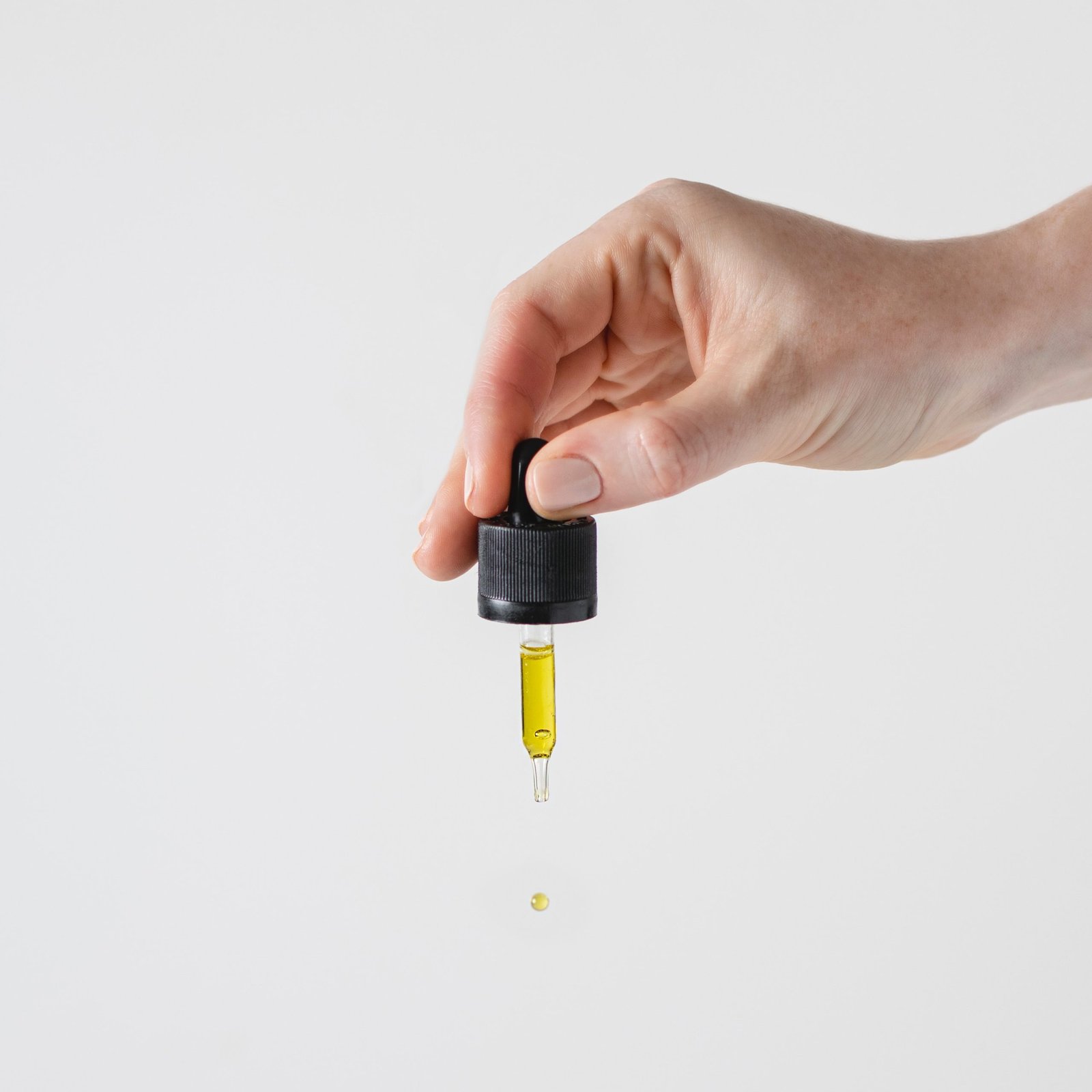
Unlocking the Benefits: The Science Behind Microdosing THC
Written: editor | August 24, 2023
Understanding Microdosing and Its Emergence
The Popularity
Microdosing THC has gained popularity in recent years. This practice involves taking small, sub-perceptual doses of THC, cannabinoid extract found in edibles. Many people are turning to microdosing as a way to experience the potential benefits of cannabinoids while minimizing its psychoactive effects.
Microdosing cannabinoids has emerged as a trend due to its ability to offer therapeutic benefits without inducing the intense high typically associated with consuming larger amounts of THC. By taking smaller doses, individuals may experience subtle therapeutic effects such as reduced anxiety, improved mood, and enhanced creativity without feeling intoxicated or impaired.
The Potential Benefits
The concept behind microdosing is similar to the idea of “less is more.” Instead of overwhelming the body with a large amount of THC or cannabinoid extract, individuals can take mini-doses that are below the threshold needed for noticeable intoxication. This approach allows for cannabinoid microdosing, potentially leading to sustained relief from symptoms like chronic pain or stress.
Moreover, microdosing enables users to maintain their daily routines while benefitting from the therapeutic properties of THC. For example, a patient dealing with chronic pain may find it easier to manage their symptoms throughout the day by incorporating small doses of cbd into their routine instead of experiencing sporadic peaks and valleys in pain relief.
The Science Behind THC and Its Effects on the Body
Interaction with Endocannabinoid System
THC, a prominent cannabinoid in cannabis, interacts with the endocannabinoid system. This interaction influences various bodily functions by binding to cannabinoid receptors. For instance, it can affect pain perception and mood regulation.
When consumed in small doses, THC may produce therapeutic effects without causing the typical “high” associated with cannabis use. This is where microdosing THC comes into play.
Impact on Neurotransmitter Release
The psychoactive effects of THC stem from its impact on neurotransmitter release. By altering the release of neurotransmitters like dopamine and serotonin, it can influence cognition, mood, and behavior. However, when microdosed appropriately, these effects are minimized while still potentially providing medicinal benefits.
Microdosing involves consuming very low amounts of THC (often as low as 2.5 mg) to achieve subtle therapeutic results without experiencing significant psychoactive effects or associated side effects such as increased heart rate or anxiety.
- Pros:
- Potential for symptom relief without impairment
- Lower risk of adverse reactions compared to higher doses
- Cons:
- Requires precise dosing for optimal results
- Individual responses may vary
Potential Benefits of Microdosing THC for Wellness
Relief from Medical Conditions
Microdosing THC may offer potential therapeutic benefits by providing relief to patients from certain medical conditions. For individuals dealing with chronic pain, anxiety, or insomnia, microdosing could be a beneficial way to manage symptoms without experiencing the intoxicating effects associated with higher doses. This approach allows patients to find the “sweet spot” dose where they experience relief without impairment.
For example, a patient struggling with chronic back pain might find that a small, controlled dose of THC helps alleviate their discomfort throughout the day. By avoiding the psychoactive effects of larger doses, patients can go about their daily activities while still benefiting from the pain-relieving properties of THC.
Improved Mood and Focus
Microdosing THC treatment could contribute to overall well-being by potentially improving mood and focus. Some users report feeling more relaxed and less anxious after incorporating microdoses into their routine. This method may also enhance creativity and cognitive function in some individuals without causing any significant impairment.
For instance, someone who struggles with focus at work might find that microdosing THC helps them stay on task and maintain mental clarity throughout the day. By staying within the microdose range, patients can harness these potential therapeutic benefits while avoiding any unwanted side effects or impairment.
Microdosing THC for Cognitive Enhancement
Influence on Cognitive Functions
Research into microdosing THC has revealed intriguing insights into its potential influence on cognitive functions. Anecdotal evidence suggests that individuals who microdose with cannabinoids experience improved focus, creativity, and problem-solving abilities. Studies have shown that low doses of THC, measured in micrograms (µg), may have a subtle yet positive impact on cognitive performance.
The effects of microdosing THC on cognition are an area of ongoing study, with researchers exploring the potential benefits and risks associated with this experimental treatment. While some individuals report enhanced mental clarity and acuity when using small amounts of THC, it’s essential to note that the impact can vary based on individual tolerance levels and sensitivity to cannabinoids.
Potential Cognitive Enhancement
Individuals seeking cognitive enhancement through microdosing often cite improvements in their ability to concentrate, think creatively, and manage stress. By consuming minuscule amounts of THC, users aim to harness the purported treatment benefits without experiencing the psychoactive effects commonly associated with higher doses.
How Microdosing THC May Alleviate Chronic Pain
Interaction with Pain Receptors
Microdosing THC has been associated with reduced pain levels in some individuals. The compound’s interaction with pain receptors in the body may contribute to this effect. When THC enters the bloodstream, it binds to cannabinoid receptors, which are part of the endocannabinoid system. This interaction can modulate pain perception and provide a sense of relief for those experiencing chronic pain.
Research has shown that microdosed THC could potentially offer analgesic properties. By targeting specific receptors in the brain and central nervous system, it may help alleviate discomfort associated with conditions such as arthritis, neuropathy, or migraines. For example, a study published in “The Journal of Pain” found that low doses of vaporized cannabis containing THC significantly reduced neuropathic pain intensity among participants.
Studies on Microdosed THC
Several studies have delved into the potential benefits of microdosing THC for managing chronic pain. These investigations have explored its effectiveness in mitigating various types of persistent discomfort without inducing significant psychoactive effects commonly associated with higher doses of cannabis consumption.
One study conducted at McGill University examined the impact of sub-psychoactive doses of smoked cannabis on experimentally induced pain. The findings suggested that microdosing THC might effectively reduce acute pain sensitivity without causing impairment or cognitive alterations typically linked to larger quantities of cannabis intake.
Managing Anxiety and Stress Through Microdosing THC
Potential Anxiolytic Effects
Microdosing THC has been linked to potential anxiolytic effects, as evidenced by anecdotal reports and ongoing investigations. Users have described feeling more relaxed and less anxious when engaging in cannabis microdosing, indicating its potential in alleviating anxiety and stress. The use of cannabinoid extracts, particularly CBD, through microdosing has shown promise in managing symptoms related to anxiety.
Research into the anxiolytic potential of microdosed THC is gaining traction, shedding light on its effectiveness in reducing anxiety levels. This suggests that individuals dealing with chronic stress or generalized anxiety may benefit from incorporating microdosing into their wellness routine. By leveraging the calming properties of cannabis consumption, individuals can potentially find relief from persistent feelings of unease.
Managing Stress Through Microdosage
For those experiencing high levels of stress or even mild depression, exploring the benefits of microdosing could be a viable option for symptom management. When consumed responsibly through methods such as edibles or carefully selected strains, microdosed THC may offer a subtle yet effective way to address symptoms associated with stress and depression without inducing paranoia or other adverse effects commonly associated with higher doses.
- Pros:
- Offers potential relief from anxiety and stress
- Can be consumed discreetly through various methods
The Role of Microdosing THC in Sleep Improvement
Influence on Sleep Quality
Research suggests that microdosing THC may play a role in enhancing sleep quality. Individuals have reported experiencing improved sleep patterns and overall better rest when using low doses of THC. This has sparked interest in exploring the potential benefits of microdosing THC for addressing sleep-related issues.
Microdosed THC is believed to have sedative effects, which can contribute to promoting relaxation and aiding in falling asleep more easily. Many people who struggle with insomnia or other sleep disturbances have found relief through the use of minimal amounts of THC, leading to an improvement in their overall sleep quality.
Research Findings
Studies have indicated that even small quantities of THC could influence the body’s natural sleep-wake cycle, potentially leading to a more balanced and restful night’s sleep. While further research is needed to fully understand the mechanisms behind this phenomenon, initial findings suggest promising implications for utilizing microdosed THC as a complementary approach for managing various sleep-related challenges.
The potential impact of microdosing THC on improving sleep quality has garnered attention within both scientific communities and among individuals seeking alternative solutions for their sleeping difficulties. As researchers delve deeper into understanding how microdosed THC affects our sleeping patterns, it opens up opportunities for exploring new avenues to address common issues related to inadequate or poor-quality sleep.
Guidelines for Safe and Effective Microdosing Practices
Start Low, Adjust Gradually
Starting with small doses is crucial. Begin with a minimal amount and observe the effects. Over time, adjust the dose based on individual response. This approach allows for finding the perfect dose that provides maximum benefit without unwanted side effects.
Microdosing involves consuming very low doses of THC, often just a fraction of what’s considered a standard dose. For instance, some individuals start with as little as 1-2 milligrams (mg) per day and gradually increase if needed. By starting low and adjusting slowly, one can gauge their sensitivity to THC without risking discomfort or adverse reactions.
Consider Individual Factors
Factors such as tolerance, metabolism, and sensitivity play significant roles in microdosing effectiveness. Each person’s body reacts differently to THC due to variations in these factors. For example, someone with high tolerance may require slightly higher doses than someone with low tolerance to achieve similar effects.
Metabolism also influences how quickly the body processes THC. Individuals with faster metabolisms might find that they need more frequent small doses throughout the day compared to those with slower metabolisms who may benefit from larger intervals between dosing.
Sensitivity refers to how strongly an individual responds to THC even at small amounts. Those who are highly sensitive may experience desired effects from extremely tiny doses while others might require slightly higher quantities for noticeable benefits.
Frequently Asked Questions
What is microdosing and how does it relate to THC?
Microdosing involves taking small, sub-therapeutic doses of a substance.Microdosing refers to consuming tiny amounts of cannabis to achieve subtle therapeutic effects without experiencing the high typically associated with larger doses.
Can microdosing THC have potential benefits for wellness?
Yes, there is emerging evidence suggesting that microdosing THC may offer various wellness benefits such as improved mood, reduced anxiety, and enhanced focus without the intoxicating effects associated with higher doses.
Is microdosing THC safe for cognitive enhancement?
When practiced responsibly and within recommended guidelines, some individuals report improved cognitive function while microdosing THC. However, individual responses can vary. It’s essential to start with very low doses and monitor your own reactions closely.
How does microdosing THC potentially alleviate chronic pain?
Research indicates that consuming small amounts of THC may help manage chronic pain by modulating pain signals in the body. By targeting specific receptors in the brain and nervous system, it could provide relief for some individuals dealing with persistent discomfort.
Can microdosing THC effectively manage anxiety and stress?
For some people, using minimal amounts of THC has shown promise in reducing symptoms of anxiety and stress. However, individual responses can differ significantly. It’s crucial to consult a healthcare professional before incorporating any new regimen into your routine.



